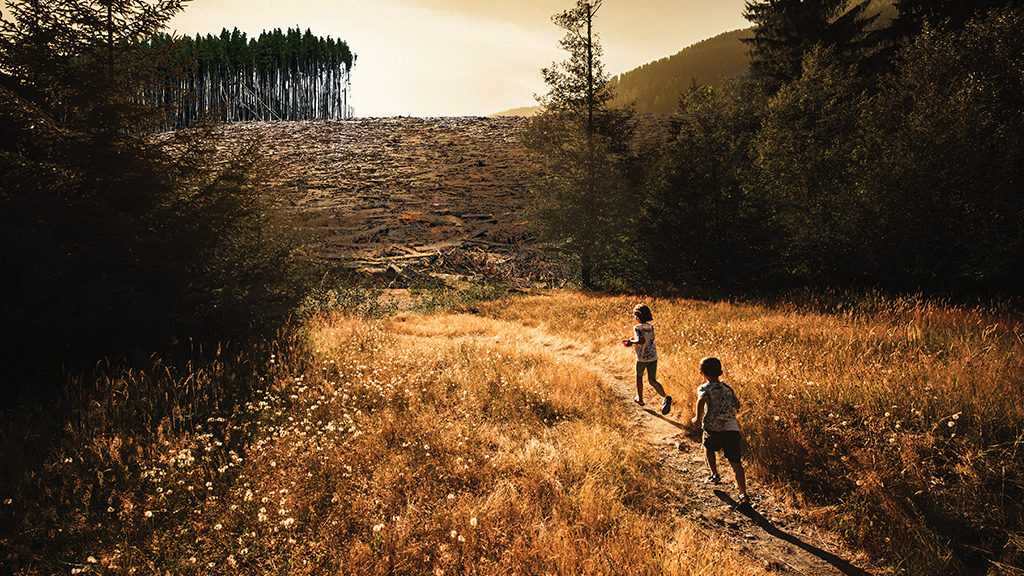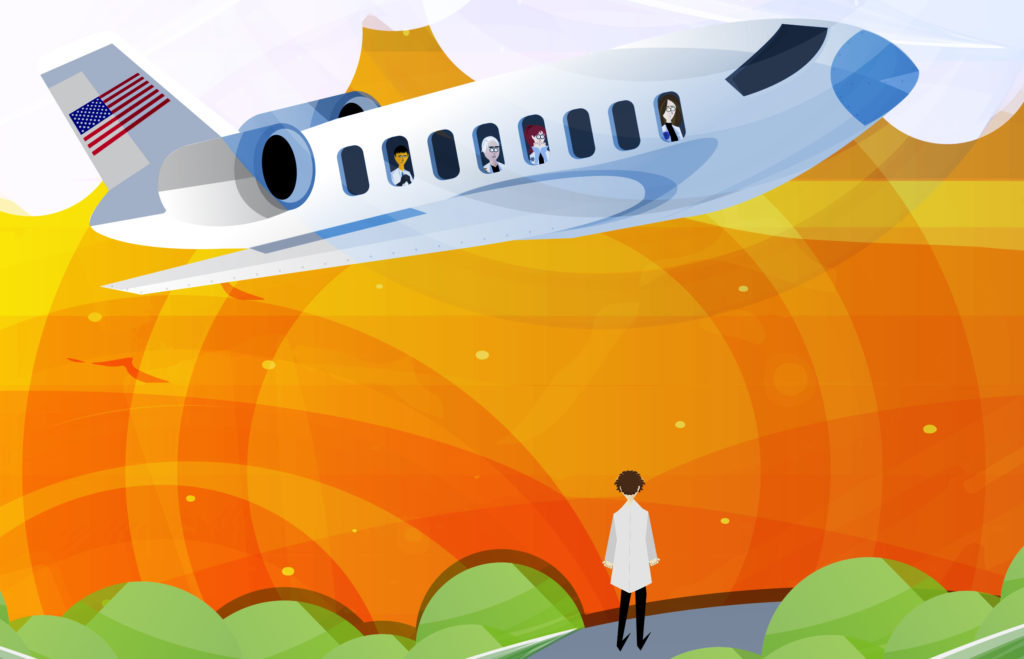
We are told, “When I was a child … I thought like a child … When I was a man I put away childish things.” Well, I once helped survey the layout of rough dirt roads for logging trucks in the virgin Douglas fir forests near Roseburg, Oregon. That was in 1947. Nearby loggers felled those great trees, half a millennium old – 300 feet high. A falling tree sent a peal of thunder echoing down the draw as we tight-roped our way across rotting old logs, crisscrossed over ancient humus some 15 feet below. It was as exhilarating as it was terrifying.
Did my reptilian 16-year old brain see the flaw in this picture? Well, yes, somewhere in the back of my mind, I suppose. But only later, when I studied engineering, then worked in industry, did I begin to see the massive responsibility we all bear for the well-being of the ecosystem that sustains us.
Years later I was an old man, back in Roseburg for my high school reunion. I looked into the matured faces of those once-teenagers; and I found a transformation. Roseburg had been a logging town when I was in school. Now, with the nearby virgin forests all eradicated, it had become a town of lumber mills. The logging trucks came from further and further away. And new growth was rising where the old forests had been.
The town now viewed wood as an agricultural product, not an ore to be mined until the vein ran out. Preservation and conservation once lay so far from our minds. Now Roseburg lived by sustaining its resources. We all had once known the astonishing wonder of those true primeval forests – and we would never know it again. I looked at my friends and there it was: “But when I became a man, I put away childish things.”
Human history is that of rapacious nomadic vandals or robber barons, settling in to become sustaining farmers in lands they once savaged. Here was that process in microcosm. These, of course, were the fortunate ones who had the resources to move to a sustaining existence. Others do not fare as well.
Consider two important Peruvian export goods: Anchovies and bird droppings – guano – for fertilizer. The shorebirds that produced guano lived on anchovies. But Peru got greedy and overfished their anchovies. The birds couldn’t eat and left. Result: economic disaster. Peru lost not one, but two of her major sources of income in the 1960s. We now have new sources of fertilizer. And Peru now carefully monitors its anchovy fishing.
Of course, we continue struggling to leave our many childhoods behind. Childhood is, after all, so much fun. Populations are now far larger. Technologies move faster. That leaves us with a daunting picture. And I believe that we in the universities need to emphasize the dangers that lie in every fast-moving and promising consumption of resources.


